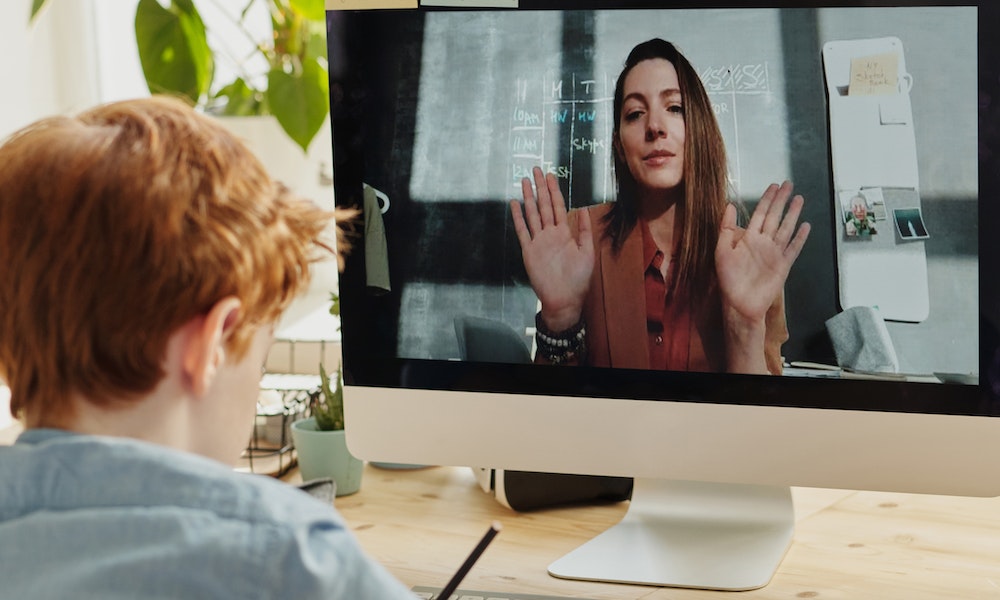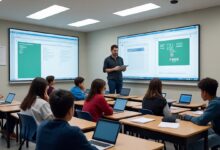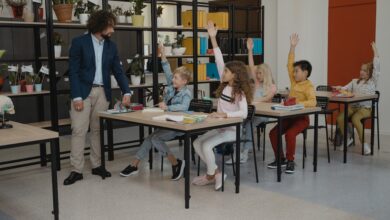10 Important Role of EdTech in Personalized Learning

EdTech in Personalized Learning, Education has come a long way, and with the advancement of technology, it has become more accessible and personalized. Technology has provided innovative solutions to old problems, including improving the learning experience for students. EdTech (Educational Technology) is a broad term that encompasses everything from online learning platforms to personalized learning tools. In this article, we will discuss 10 important roles of EdTech in personalized learning.
Technology has transformed every aspect of our lives, and education is no exception. The traditional classroom setup has evolved, and technology has enabled personalized learning. Personalized learning caters to the needs of individual students and provides a tailored learning experience. EdTech plays a vital role in delivering personalized learning.
Read More: EdTech is Transforming Early Childhood Education: 10 Best Ways
Definition of EdTech
EdTech in Personalized Learning, EdTech is the use of technology in education to improve the teaching and learning experience. It includes a wide range of tools, such as learning management systems, educational apps, and online learning platforms. The goal of EdTech is to enhance the learning process, making it more engaging and effective.

Personalized Learning
EdTech in Personalized Learning, Personalized learning is an approach to education that tailors the learning experience to the needs of individual students. It focuses on the strengths and weaknesses of each student, enabling them to learn at their own pace. Personalized learning allows students to take ownership of their learning and promotes a deeper understanding of the subject matter.
Benefits of Personalized Learning
EdTech in Personalized Learning, There are many benefits of personalized learning, including:
- Improved student engagement
- Increased motivation to learn
- Greater academic achievement
- Enhanced critical thinking skills
- Greater student ownership of learning
Importance of EdTech in Personalized Learning
EdTech is crucial in delivering personalized learning. It provides students with access to a variety of learning tools and resources that can help them tailor their learning experience. The following are 10 important roles of EdTech in personalized learning:
Role 1: Adaptive Learning
EdTech in Personalized Learning, Adaptive learning is a personalized learning approach that uses technology to deliver a customized learning experience. It involves the use of algorithms that analyze student data to create a personalized learning plan. Adaptive learning helps students learn at their own pace and ensures that they are challenged appropriately.
Role 2: Gamification
Gamification is the use of game design elements in non-game contexts, such as education. Gamification can be used to make learning more engaging and interactive. It involves the use of rewards, badges, and points to incentivize learning.
Role 3: Virtual Reality
EdTech in Personalized Learning, Virtual Reality (VR) technology allows students to experience a simulated environment that feels real. VR can be used in education to create immersive learning experiences that are difficult to replicate in real life. For example, VR can be used to simulate a historical event or a scientific experiment.

Role 4: Artificial Intelligence
Artificial Intelligence (AI) is the use of machines to perform tasks that typically require human intelligence, such as problem-solving and decision-making. AI can be used in education to provide personalized learning experiences. For example, AI algorithms can analyze student data to identify areas of strength and weakness and create customized learning plans.
Role 5: Mobile Learning
Mobile learning involves the use of mobile devices such as smartphones and tablets to deliver learning content. Mobile learning provides students with access to learning resources anytime, anywhere. It can also be used to deliver personalized learning experiences, such as adaptive learning and gamification.
Role 6: Collaborative Learning
Collaborative learning involves students working together to achieve a common goal. EdTech tools can be used to facilitate collaborative learning, such as online discussion forums and video conferencing. Collaborative learning promotes social interaction and can enhance the learning experience.
Role 7: Data-Driven Learning
EdTech in Personalized Learning, Data-driven learning involves the use of student data to inform instructional decisions. EdTech tools can be used to collect and analyze student data, such as assessments and progress reports. Data-driven learning allows teachers to identify areas of strength and weakness and adjust their instruction accordingly.
Role 8: Differentiated Instruction
Differentiated instruction involves tailoring instruction to the needs of individual students. EdTech tools can be used to provide differentiated instruction, such as adaptive learning and content customization. Differentiated instruction helps ensure that all students receive the support they need to succeed.
Role 9: Content Customization
Content customization involves tailoring learning content to the needs of individual students. EdTech tools can be used to provide content customization, such as adaptive learning and gamification. Content customization ensures that students receive content that is relevant and engaging.
Role 10: Interactive Whiteboards
Interactive whiteboards are large touch-sensitive screens that can display digital content. Interactive whiteboards can be used to create engaging and interactive learning experiences. For example, teachers can use interactive whiteboards to display multimedia content and collaborate with students in real-time.

EdTech in Personalized Learning, Conclusion
EdTech plays a vital role in delivering personalized learning. Adaptive learning, gamification, virtual reality, artificial intelligence, mobile learning, collaborative learning, data-driven learning, differentiated instruction, content customization, and interactive whiteboards are just some of the many ways EdTech can enhance the learning experience. As technology continues to evolve, we can expect to see even more innovative EdTech solutions in the future.
Read More: The Importance of Accessibility in EdTech
FAQs
What is personalized learning?
Personalized learning is an approach to education that tailors the learning experience to the needs of individual students.
What are the benefits of personalized learning?
The benefits of personalized learning include improved student engagement, increased motivation to learn, greater academic achievement, enhanced critical thinking skills, and greater student ownership of learning.
What is EdTech?
EdTech is the use of technology in education to improve the teaching and learning experience.
How does EdTech help in personalized learning?
EdTech provides students with access to a variety of learning tools and resources that can help them tailor their learning experience.
What is adaptive learning?
Adaptive learning is a personalized learning approach that uses technology to deliver a customized learning experience. It involves the use of algorithms that analyze student data to create a personalized learning plan.










